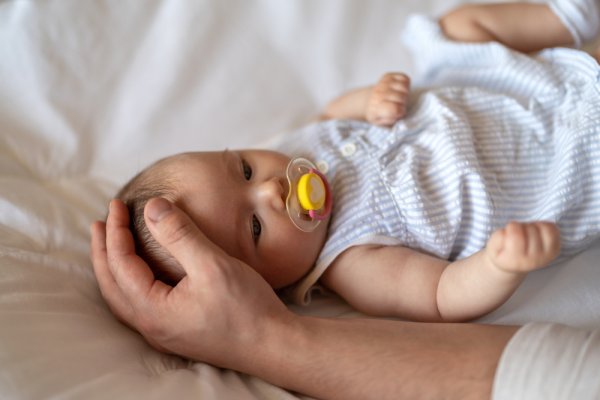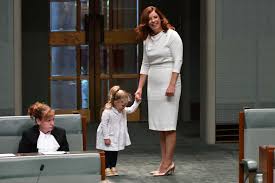My baby was three months old when COVID-19 forced us all indoors. At first I mourned my sabotaged parental leave plans: I missed the company of my doting family and the members of my mothers’ group; swimming lessons were off; and my travel plans were out the window. But when my (male) partner was sent home to work I realised how great this could be for our little family.
As a gender specialist and practising feminist I see the world through a gendered lens, making me hyper-vigilant about gender equality in my own life and relationships. When planning care arrangements for our new baby I was therefore very keen for my partner to take on an equal role, and I felt disappointed and frustrated by his reluctance to take an extended period of time out of the workforce to do so.
Social distancing under COVID-19 presented us with a compromise; while working from home my partner could be actively involved with caring for our son while continuing to build up his superannuation. We have certainly experienced a silver lining during COVID-19, which I’m dreading the end of.
 As the parent on full-time parental leave, I’m our child’s primary carer. However, being at home means that my partner is also involved in day-to-day care for our baby.
As the parent on full-time parental leave, I’m our child’s primary carer. However, being at home means that my partner is also involved in day-to-day care for our baby.
When the daily commute involves rolling out of bed and turning on a computer, and when looking presentable for work is not an issue, two hours in the day are freed up for quality family time.
When the daily commute involves rolling out of bed and turning on a computer, and when looking presentable for work is not an issue, two hours in the day are freed up for quality family time.
Throughout the day my partner provides practical support putting the baby to sleep and changing nappies (the upshot of having a home office combined with a baby-change room). If he manages to complete work early he can bond with his son, rather than needlessly hanging around the office to be seen to be present (and increasing the burden on me at home).
As I write this our baby has just woken and his dad has gone to get him up. This is one of my partner’s favourite parts of the day – seeing our son’s face smiling up at him when he wakes from his nap.
Having my partner working from home isn’t just good for our baby, it’s also good for me. I’m less exhausted and have more time for myself. I have been able to resume my pre-motherhood daily yoga routine, knowing that my partner can occupy the baby if he wakes during my practice. I have a little extra time for activities that enable me to use my brain (such as writing blogs!).
 Importantly, I feel less isolated and more understood. Even when focusing on work my partner is not deaf to the sounds of a crying baby or blind to the effort it takes to keep a four-month-old constantly entertained. In this way he is forced to share in the more challenging parts of parenting and to bear witness to the demands of caring for a baby full-time.
Importantly, I feel less isolated and more understood. Even when focusing on work my partner is not deaf to the sounds of a crying baby or blind to the effort it takes to keep a four-month-old constantly entertained. In this way he is forced to share in the more challenging parts of parenting and to bear witness to the demands of caring for a baby full-time.
I don’t know if my partner will be brave enough to ask to continue working from home when lockdown ends or if his employer would be progressive enough to allow it. What I do know is that COVID-19 has created an opportunity for a powerful precedent to be set. My partner – and thousands of workers across the country – have shown that they can be productive while working flexible hours outside the office. Surely this will make it harder for employers to say ‘no’ to such requests in the future.
I don’t know if my partner will be brave enough to ask to continue working from home when lockdown ends … [But] I do know that COVID-19 has set a powerful precedent.
I recognise that the positive nature of my COVID-19 experience reflects my privilege: I have a helpful partner; I live in a safe and comfortable home; I’m financially secure; I haven’t had to juggle work and home-schooling; and my partner is a computer jockey whose work can be done from home (meaning that he has remained employed through the crisis).

Annika Wells
But there are some parts of this abnormal experience that should be normal. I couldn’t agree more with Labor MP Anika Wells that we need more flexible workplace arrangements, for men as well as women.
I can only hope that the crisis of COVID-19 makes way for radical positive social change, including in how our workplaces support families to share caring and domestic responsibilities within Australian households.




